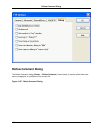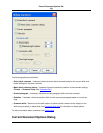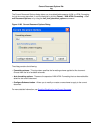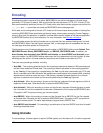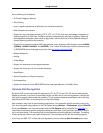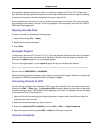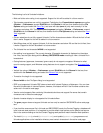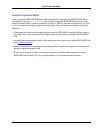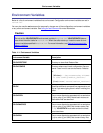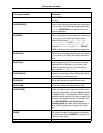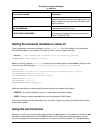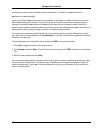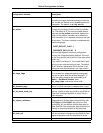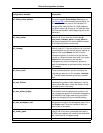
Unicode Implementation
Native Unicode and SBCS/DBCS editing modes are supported. When you edit a SBCS/DBCS (active
code page) file such as a .c, .h, or .java file, the data is loaded as SBCS/DBCS data and is not con-
verted to Unicode. When you edit a Unicode file, such as an XML file, the data is converted to UTF-8 that
is one of the standard formats for supporting Unicode files. There are several advantages to this imple-
mentation:
• Since almost all source files for programming are stored as SBCS/DBCS, loading these files is signific-
antly faster. This is very important to our customers who expect superior performance from SlickEdit®
Core.
• Unicode editing modes cannot support all the features you were used to when editing SBCS/DBCS files
(see Unicode Limitations).
• Macros can be written once to support both editing modes. This was very important to us because we
wanted to reduce development time.
• Since Unicode is stored as UTF-8, only one set of binaries is required. Most products that support
SBCS/DBCS and Unicode (UTF-16), use preprocessing. This requires two sets of binaries.
Environment Variables
474



